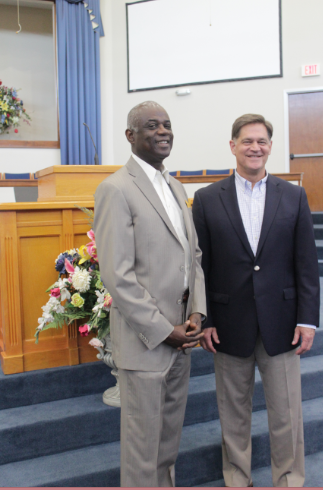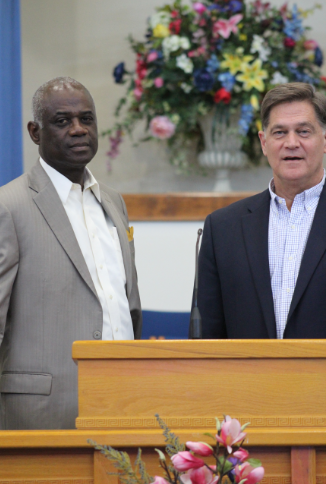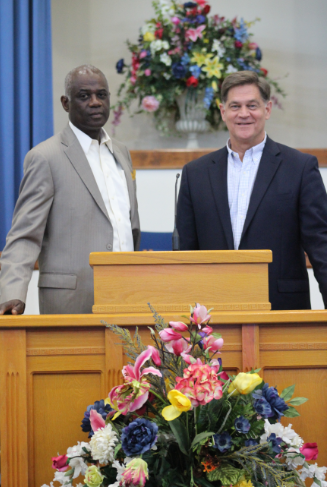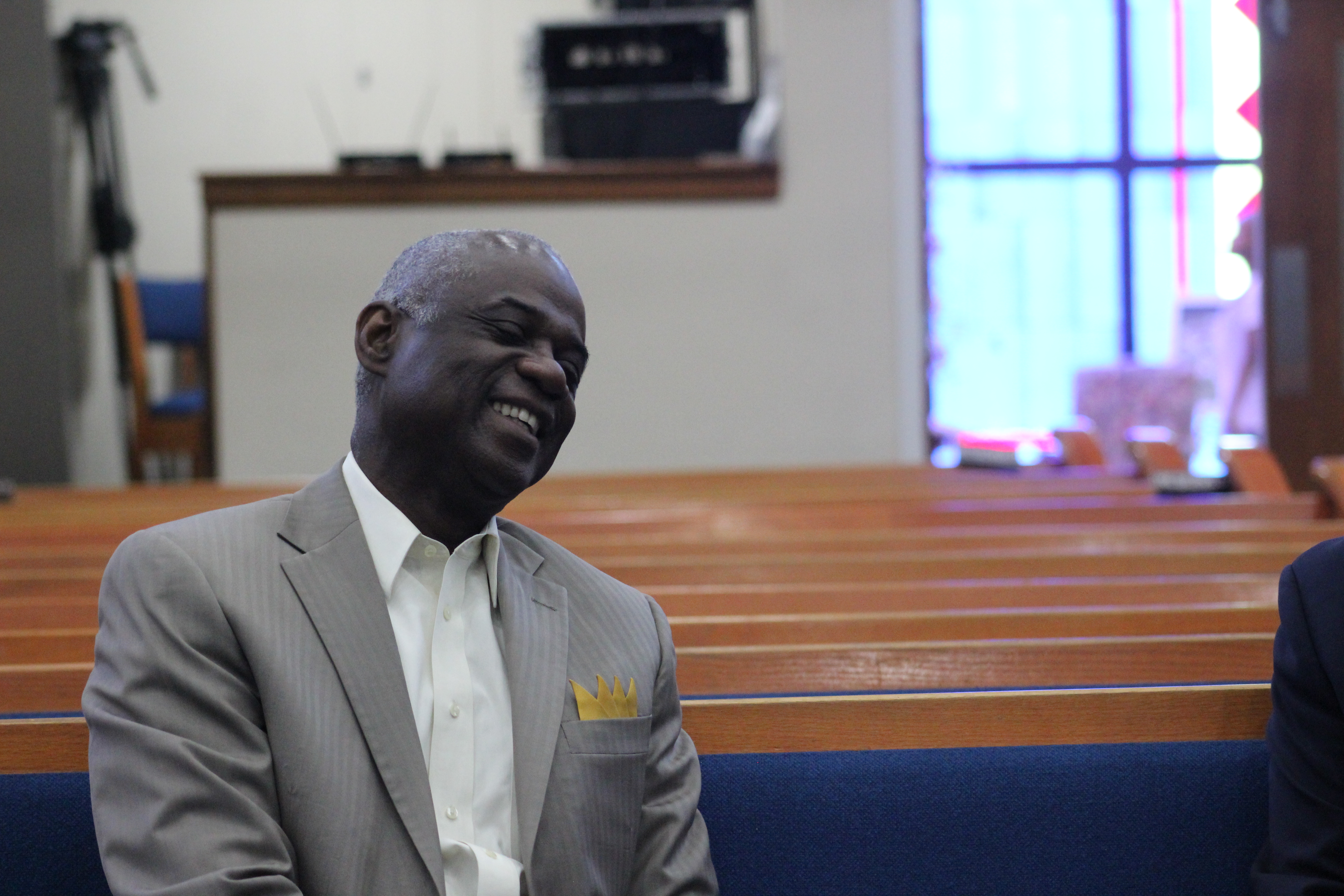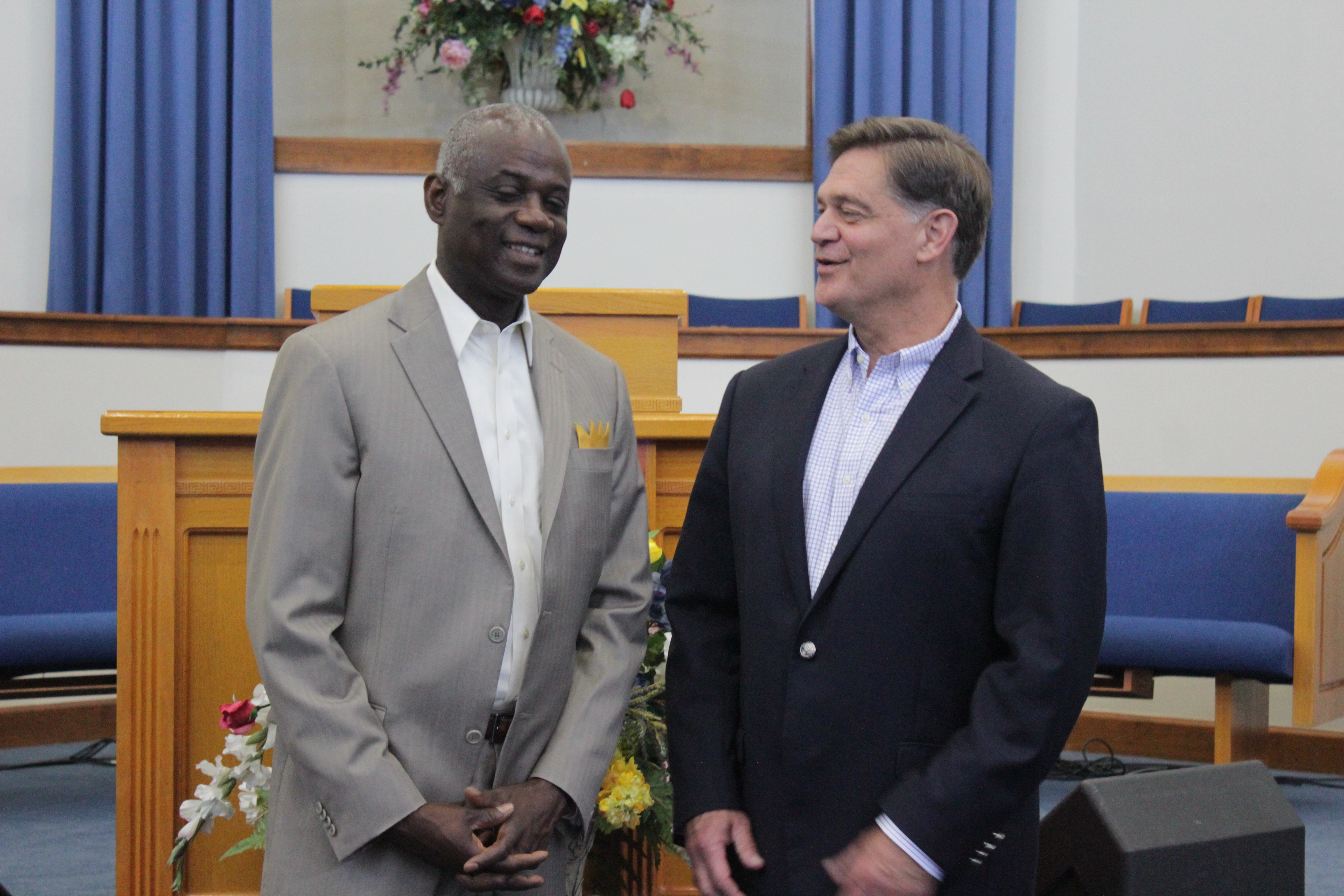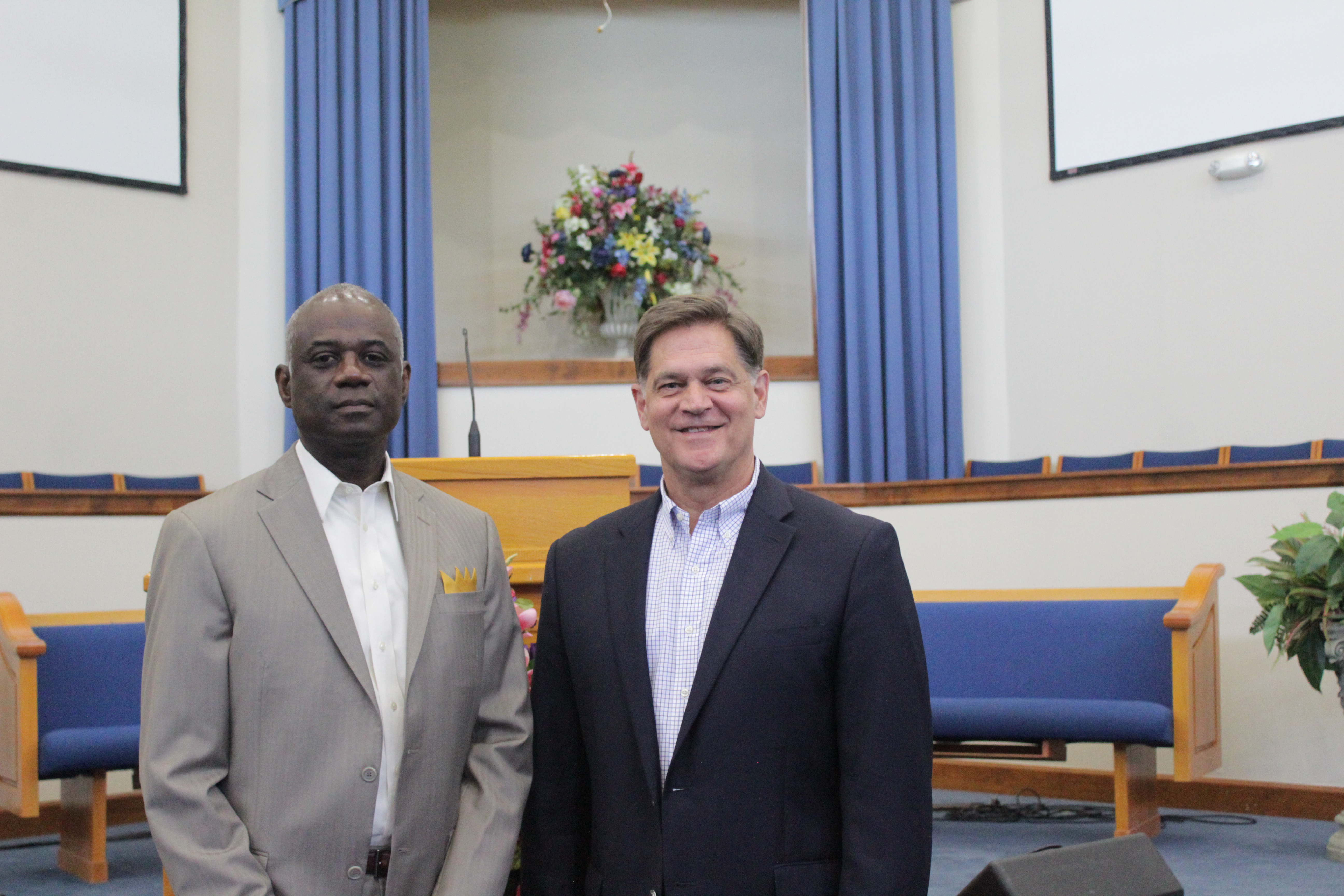
By Ariel Worthy
The Birmingham Times
“The church is still the most segregated major institution in America. At 11 on Sunday morning, when we stand and sing, and Christ has no east or west, we stand at the most segregated hour in this nation. This is tragic,” the Rev. Dr. Martin Luther King Jr. once said.
Two area pastors said that doesn’t have to be so. They believe black and white congregations can worship together on Sunday mornings and live as one during the rest of the week, as well.
Thomas Wilder Jr., pastor of Bethel Baptist Church in Collegeville, and Tim Kallam, senior pastor of Mountain Brook Community Church, recently sat for an interview with the Birmingham Times to discuss the perception that some churches have historically been split across racial lines. The two pastors are close friends who began combining worship services that touch on several topics, including race.
During their first forum in August 2017, the discussion on race centered on “things people are hesitant to talk about,” said Wilder, pastor of the historic church once under the leadership of legendary Civil Rights activist the Rev. Fred Shuttlesworth.
The second discussion about race and politics, which took place in March 2018, was “one of those things we needed to talk about,” he said. “I don’t think we can solve any of the issues surrounding that with a conversation, but we did have a conversation.”
Organic Growth
One goal, Kallam said, is to create an environment where people “talk with one another rather than, in our polarized world, talk at each other. That’s really part of the bigger picture, which is to build relationships that then spill over to individuals in our churches, sharing meals together, working on projects and things like that.”
The churches also plan to conduct joint worship services to build a relationship through “the Gospel of Christ,” said Kallam.
“We don’t have a set plan that we’re going to do these events,” he said. “We don’t have a set calendar, but it really is growing out of a relationship and partnership between the two churches.”
Wilder added that the churches want “organic growth.”
“We want the relationships to naturally grow and not be forced,” he said. “We want the people there to be genuine.”
The meetings have been productive, and members of both churches have connected for other meetings, conferences, and work projects.
“Some of the men from Bethel came to our men’s conference,” Kallam said. “And some of our women went to a women’s conference at Bethel.”
The partnership also has been educational for both pastors.
“It has been eye-opening to me to say that I might think I understand where someone is coming from,” said Kallam.
During a tour of the Bethel Baptist Church in Collegeville, which had been bombed during the Civil Rights Movement, Kallam said he had “no idea that Bethel Baptist Church had been so instrumental. To hear some of the things I heard really opened my eyes.”
About Comfort
The segregation on Sunday mornings that Dr. King spoke about during an event at Western Michigan University in 1963 does not necessarily mean racism, said both pastors.
“I think [church segregation] is about comfort,” said Wilder. “The styles. The message. The comfort of people with whom they’re going. The doctrine. It’s closer to home. It’s the family church. There are a number of reasons people stay with their own churches. It’s culture. And just because it’s culture doesn’t mean there’s racism behind it. Sometimes it’s just the church they have known for years.”
Churches also tend to reflect the areas in which they are located.
“I think the more diverse the communities in Birmingham are, the churches will follow suit,” Kallam said.
Besides, people, regardless of color, are always welcomed by congregations, he said.
Kallam recalled seeing an African-American man who had moved to Birmingham for a new job in the parking lot of his church one day: “He got out the car and asked, ‘Hey I just wanted to know if would I be welcomed here.’ I was taken aback because he had to ask the question, but my response was, ‘Of course, you are welcome here.’”
Building Bridges
Bethel and Mountain Brook are two churches with different racial, socioeconomic, and age demographics. Their relationship, however, shows that it is possible for people to work together—both inside and outside of the church.
“I wouldn’t expect Mountain Brook to change who they are because of us, and I don’t expect us to change because of Mountain Brook,” Wilder said. “We are who God has called us to be, but we’re not going to build a wall around who God has called us to be.”
The partnership also reflects a larger mission.
“We have waited too long for the world to show us what God has already taught us,” said Wilder. “We’re taking the initiative in the name of the gospel to at least talk to each other. We have to do what our Father in heaven taught us to do.”
Kallam added that he believes mutual respect is what enables churches to grow together.
“Some churches have tried to move in a situation and say, ‘We have all the answers, and this is what we’re doing.’ That’s not what we’re about,” he said. “We have tremendous respect for Bethel. There are differences, but we hold in common the most important thing: a commitment to live out the gospel in the most intentional way.”



